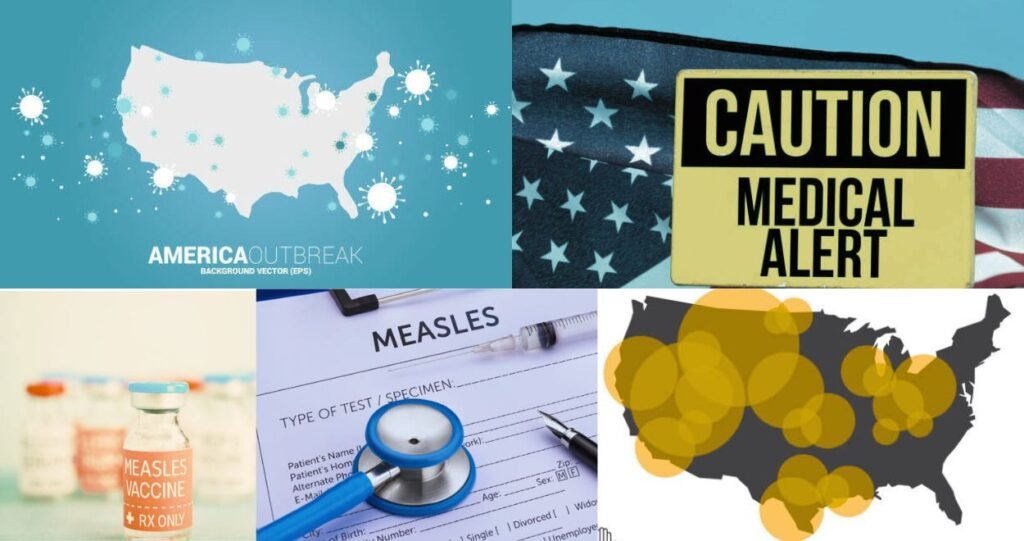So, What’s the Big Beautiful Bill All About?
This substantial piece of legislation is set to shake up healthcare in the U.S., impacting millions of families across the nation and leading to noticeable changes in healthcare expenses. While Congress intended this bill to assist workers and families, it’s a mixed bag—some components might actually raise costs while others aim to lighten tax burdens.
How Will the Big Beautiful Bill Affect Your Healthcare?
Medicare Changes Coming Up
For Medicare users, brace yourselves for some new rules. Thanks to the Big Beautiful Bill, certain benefits under Medicare are being cut, which could mean that older adults will end up paying more for routine healthcare visits. On top of that, we might see a hike in prescription drug prices, along with potential difficulties in accessing certain medications. Furthermore, Medicare plans are expected to revise their coverage policies.
Medicaid Faces Major Cuts
Medicaid, the program that helps low-income families get the healthcare they need, is also in for a tough time, with funding being slashed by over a trillion dollars. This hefty cut means fewer folks will be able to access the assistance they truly need. Many states will lose vital federal funding for Medicaid, forcing them to make tough choices about which services to cut. Consequently, a significant number of low-income families could find themselves without health coverage.
Changes to the Affordable Care Act
The Affordable Care Act (ACA) has been a lifeline for middle-class families seeking health insurance, but with the new Big Beautiful Bill, these plans are becoming pricier. This could mean fewer individuals can afford quality health insurance. Insurance companies will have the green light to raise their prices, and some health benefits might get the axe from insurance plans, leading to more out-of-pocket expenses for families.

Who Gets Hurt by These Changes?
Working Families Pay More
For working families, the impact of these changes is significant. Their health insurance costs skyrocket, making it tough for many to visit the doctor as often as they need. As a result, when people skip those routine checkups, emergency room visits start to climb, leading to bigger health issues down the road.
Rural Areas Lose Services
Rural hospitals are facing tough times, struggling to keep their doors open. The Big Beautiful Bill slashes funding sources, putting many small towns at risk of losing their only hospital. To make matters worse, doctors are leaving these areas in search of better pay, forcing residents to travel long distances just to see a physician.
Children and Families Suffer
Kids are losing vital access to health services, and school health programs are getting budget cuts. Families find themselves constantly worried about the costs of care for sick children. Pregnant women are feeling the sting as well, facing reduced support during their pregnancies, which puts both them and their babies at risk.
What Good Things Does the Big Beautiful Bill Do?
Workers Get Tax Relief
On the plus side, the Big Beautiful Bill offers some workers a chance to save a bit of money. Those who earn tips won’t have to pay taxes on them, and overtime workers are also enjoying some tax breaks. These changes are putting more cash in workers’ pockets, though higher health costs might offset those savings.
Some Businesses Save Money
Small businesses are benefiting too, as they’re paying less in certain taxes, allowing them to hire more staff. This could potentially lead to a quicker economic recovery. However, these same businesses are grappling with rising health insurance costs for their employees, leading to a challenging balancing act.
How Much Will Healthcare Cost You Now?
Premium Prices Go Up
Health insurance premiums surge for most people. The Big Beautiful Bill cuts out the assistance that kept costs manageable, meaning families may find themselves shelling out hundreds more each month. Young adults are hit the hardest with these premium hikes as they are required to either buy insurance or face penalties.
Doctor Visits Cost More
Going to see your doctor is getting pricier. The new big bill reshuffles how much your insurance covers, meaning patients are now on the hook for more out-of-pocket expenses. Specialist visits are seeing even steeper price tags. As a result, many folks are postponing crucial medical care just because it’s too costly.
Prescription Drugs Get Pricier
The price of medicines is on the rise due to the new regulations. This bill has lifted price controls on certain drugs, a change that hits sen iors particularly hard. Essential life-saving medications are becoming tougher to manage financially. Some people are even skipping necessary prescriptions altogether.
What Happens to Different Types of Insurance?
Job-Based Insurance Changes
For most Americans, health insurance comes through their jobs. Unfortunately, this new big bill also impacts those plans. Employers might cut back on benefits to trim costs, leaving workers to pay more for the same level of coverage. Some companies might even drop health insurance altogether.
Individual Market Plans Cost More
For those buying their own insurance, brace yourselves for significant price hikes. The removal of subsidies from the big bill is hitting hard—and middle-class families are feeling it the most. A lot of healthy individuals are opting out of insurance entirely, which only exacerbates the problem for those who are unwell.
Government Programs Shrink
Both Medicare and Medicaid are serving a smaller portion of the population now. This big bill has tightened the eligibility rules, which could mean millions losing their coverage. Emergency rooms are seeing an increase in uninsured patients, leading to higher costs for everyone else.
When Do These Changes Start?
Immediate Changes Begin Now
Certain aspects of the big bill are kicking in right away. The tax adjustments for workers will take effect first, helping some families save money in a hurry. However, changes regarding health insurance will take longer to manifest. Most people probably won’t see significant shifts until next year.
Gradual Changes Roll Out
Some changes will unfold gradually over the next decade. Medicaid reductions will be rolled out in a way to ease the transition for states, giving them time to modify their programs. Nonetheless, some changes can accelerate if states opt for that route, allowing each state to determine how quickly they implement cuts.
How Can You Prepare for These Changes?
Check Your Current Coverage
Take a look at your health insurance plan right now. The Big Beautiful Bill might shake things up with your coverage, so it’s a good idea to reach out to your insurance company and ask any questions you have. Don’t forget to check your doctor and hospital networks too—some might not be included in your plan anymore due to payment changes.
Save Money for Health Costs
It’s wise to start setting aside some money for those higher health expenses that could come your way. With the Big Beautiful Bill, most care is expected to cost more, and having a little extra saved can really help when you need medical attention. If you can, consider opening a health savings account. These accounts can help you pay for medical bills with money that isn’t taxed.
Stay Healthy to Avoid Costs
Focus on your health to keep those doctor visits to a minimum. Eating nutritious food and getting regular exercise goes a long way—prevention is definitely cheaper than treatment. And be sure to get your check-ups while they’re still affordable; catching health issues early can save you quite a bit down the line.
What Critics Say About the Big Beautiful Bill
Doctors Worry About Patient Care
A lot of doctors aren’t on board with certain parts of the Big Beautiful Bill. Their concern is that patients might avoid necessary care due to high costs, which could lead to more serious health problems later on. Medical organizations are also voicing their fears that rural hospitals could close, leaving entire communities without local healthcare options.
Patient Groups Fight Changes
Groups that advocate for sick individuals are speaking out against the new law. They argue that the Big Beautiful Bill actually harms those who need support the most—particularly poor and sick Americans who could face the toughest challenges. These organizations are working hard to change the more damaging aspects of the bill and are urging Congress to address the worst issues.
What Supporters Say About the Changes
Government Saves Money
Supporters of the Big Beautiful Bill contend that it helps reduce government spending. They argue that this could lead to economic growth overall, as lower taxes might create more job opportunities for everyone. Additionally, they believe that private insurance will provide better service than government programs, with competition driving prices down in the long run.
Workers are set to take home more pay thanks to the Big Beautiful Bill, which means more cash for families to spend. By eliminating taxes on tips and overtime, millions can enjoy the benefits, leading to a boost in the economy. Supporters argue that people can invest in better insurance thanks to the savings they reap from reduced taxes. They believe that free markets are more effective than government regulations.
Looking Forward: What’s Next?
States Will Face Tough Decisions
Every state has its share of hard choices regarding healthcare programs. The Big Beautiful Bill compels states to either cut services or hike taxes, with many opting for service cuts instead. Some states might come up with innovative solutions to assist residents, while others could resort to significant cuts that negatively impact numerous families.
Possible Future Adjustments
There’s a chance that Congress may tweak aspects of the Big Beautiful Bill down the line. If serious issues arise, lawmakers may step in to address them. Upcoming elections could also lead to shifts in how healthcare is approached.
Wrapping Up Thoughts on Healthcare Changes
The Big Beautiful Bill has created a mix of winners and losers in the landscape of American healthcare. While some workers enjoy the perks of tax reductions, many families are facing increasing medical expenses. Grasping these shifts can empower you to make informed healthcare decisions. It’s wise to have conversations with your doctor and insurance provider about what lies ahead. Planning is key to safeguarding your family’s health and finances. Healthcare impacts everyone differently under the new law, so it’s crucial to keep yourself updated on the changes that affect your particular situation. Being knowledgeable can help you navigate these challenging times with success.
Frequently Asked Questions About the Big Beautiful Bill
When will the Big Beautiful Bill start affecting my healthcare?
Some changes will take effect immediately, with tax breaks for workers being the first. However, most alterations to health insurance will roll out gradually over the next year, each with its own timeline.
Will my health insurance cost more now?
Unfortunately, yes. Most people are likely to see an increase in premiums, as the Big Beautiful Bill removes the assistance that once kept costs manageable. Families could face hundreds of dollars more each month for the same coverage.
Who benefits most from these changes?
Workers who rely on tips and overtime pay see some advantages from tax cuts. Small businesses can also save a bit on their taxes. But keep in mind, rising health costs might offset those savings.
What should I do if I lose my health insurance?
Reach out to your state Medicaid office to check if you qualify for assistance. Look for job opportunities that provide health benefits. You might also want to explore short-term insurance plans. Community health centers can be a great resource for basic care.
How do these changes affect children’s healthcare?
Unfortunately, kids might lose access to crucial health services. School health programs are facing budget cuts, which adds to families’ worries about affording care for their sick children.
Will emergency room visits increase?
Absolutely, more people will turn to emergency rooms when they can’t afford regular doctor visits. This can lead to bigger health issues down the line, and remember, emergency care is significantly more expensive than preventive care.
For more FAQs, please click here.










